This article appears for archival purposes. Any events, programs and/or initiatives mentioned may no longer be applicable.
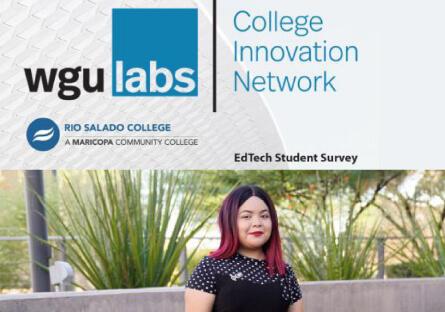
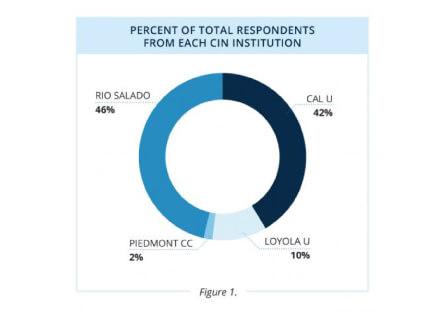
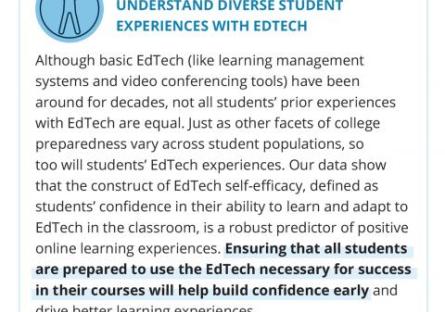
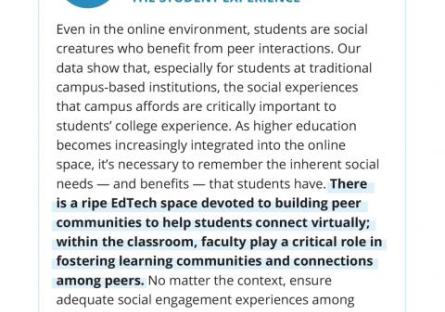
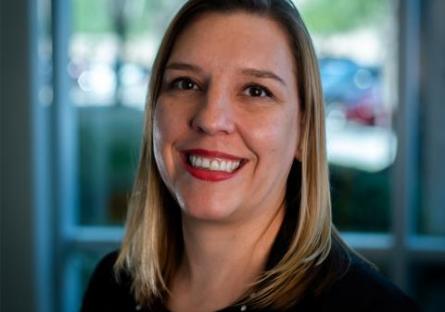
In August of 2020, Rio Salado College became a founding partner of the College Innovation Network (CIN), which was designed to connect leaders from colleges and universities with EdTech innovators to advance students’ academic, career and life outcomes. The press release below was published Aug. 5, 2021 to provide information about a new CIN report gauging student learning experiences with education technology.
We are proud to serve with WGU Labs as a founding member of CIN and to make this insightful report available to you and higher learning institutions across the country. We will use these findings to guide our work in making higher learning equitable and accessible for all.
A special thank you to all of the Rio Salado students who took part in the survey. Your voice matters and helps shape the future of higher education.
Multi-Institution Survey of Nearly 700 College Students Points to New Digital Divide in Online Learning
College Innovation Network’s student survey highlights importance of ‘EdTech self-efficacy’ for positive online learning experiences and identifies equity gaps
The College Innovation Network (CIN), an initiative spearheaded by WGU Labs, today published the results of a multi-institution survey aimed at understanding students’ learning experiences with education technology (EdTech) during the 2020-2021 academic year.
The New Digital Divide: How EdTech Self-Efficacy is Shaping the Online Student Learning Experience in Higher Ed shares survey results from 684 students across four CIN member institutions—California University of Pennsylvania, Loyola University New Orleans, Piedmont Community College, and Rio Salado College—all of which serve diverse student populations. Results indicate that students’ confidence in their ability to learn and adapt to EdTech in the virtual classroom—or “EdTech self-efficacy,” as coined by CIN in the report—was an important predictor of how positive students’ online learning experiences were over the past year.
The survey consisted of 24 questions about students’ experiences with EdTech and online learning over the 2020–21 academic year, and participants were from diverse backgrounds, attend diverse school types, and are at various stages of their higher education journey.
Among the findings:
- Twenty percent (20%) of respondents “somewhat agree” or “strongly agree” that they have struggled to learn how to use educational technologies in online courses.
- A third (33%) of respondents “somewhat agree” or “strongly agree” that having to learn how to use new educational technologies throughout the year has been hard.
- More than a third (34%) of respondents report that most of the education technologies they used over the school year were new to them.
“There is an implicit assumption in the EdTech industry that students today are ‘digital natives’ and will quickly and easily learn to use new tech in the classroom,” said CIN research lead, Dr. Nicole Barbaro. “While this may be true for most, our survey shows that this assumption may be leaving upwards of 20 percent of college students behind, and students of color are impacted at a higher rate than their white counterparts.”
The survey report also highlights the types of EdTech students reported using most often in their online courses. Foundational EdTech hardware (i.e., laptops and tablets) and software (i.e., Microsoft Office, video conferencing, Google Suite) are driving the online learning transition in higher education, and findings from the survey show that inequitable access to foundational EdTech can create tech dependencies for new products and exacerbate inequity.
“The findings from our research demonstrate that the digital divide is more complex than only inequity of access to EdTech,” said CIN Director, Dr. Omid Fotuhi. “Rather, it is also a product of the inequities that impact whether, and how, students actually use those essential EdTech resources. This is important to understand so we can ensure all students are getting the most out of their online learning experiences.”
Some of the survey questions were designed to measure differences in how students at online institutions and traditional brick-and-mortar institutions experienced online learning in the pandemic. The results indicate a significant statistical difference between the groups, with students from online programs reporting better experiences (p < .001) with EdTech than their brick-and-mortar counterparts.
“This study underscores the fact that students must learn both technology and content to experience effective online learning,” said Janelle Elias, Interim Vice President of Strategy, Advancement, and National Division at Rio Salado College. “Introducing any new technology into the learning experience requires appropriate resources and supports to mitigate negative impacts to teaching and learning content.”
CIN was launched in 2020 by WGU Labs—Western Governors University’s research and development hub—with support from the Charles Koch Foundation and is designed to connect leaders from colleges and universities with educational technology (EdTech) innovators to advance students’ academic, career, and life outcomes. The 2021CIN EdTech Student Survey is the inaugural report in an annual series of research studies CIN has planned to provide insight into how students are learning with EdTech. Learn more about CIN and the report at https://wgulabs.org/college-innovation-network.